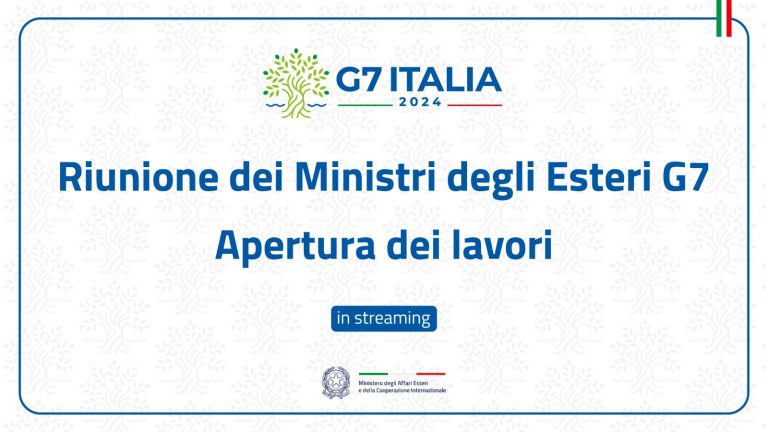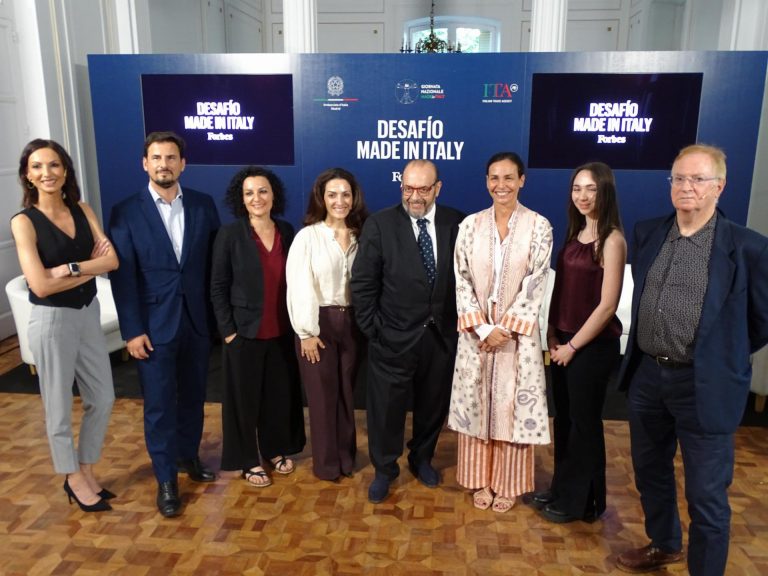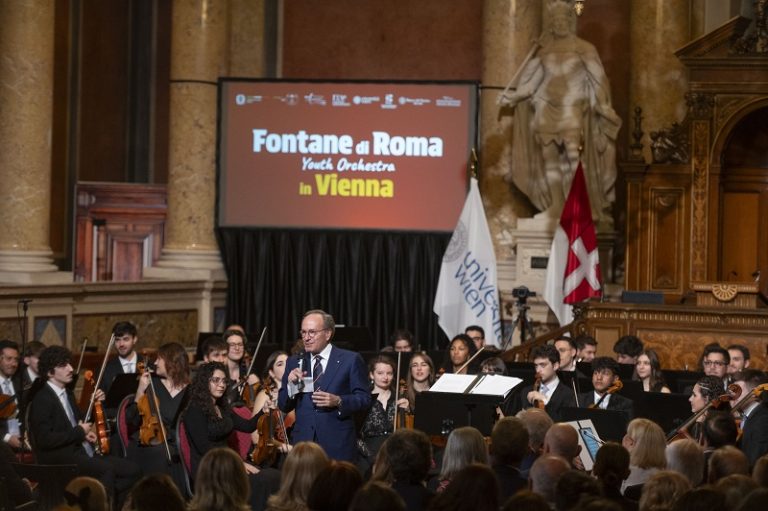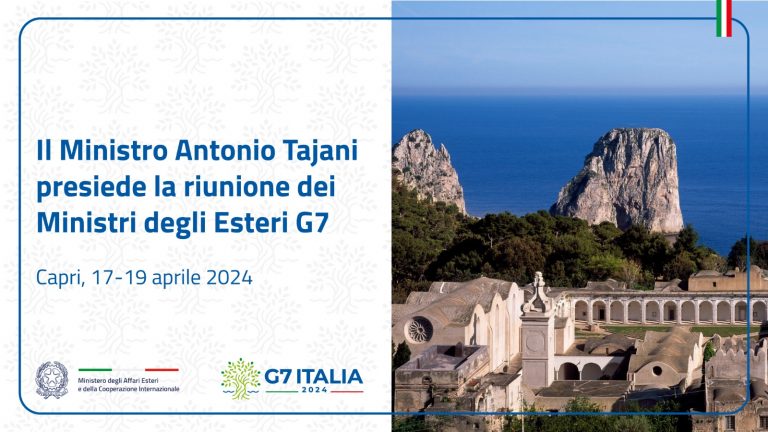The 16th Ministerial Conference of Mediterranean Forum (Algeria, Egypt, France, Greece, Italy, Malta, Morocco, Portugal, Spain, Turkey, and Tunisia) was held in Rome on February 20th 2012. Libya and Mauritania attended as Chair guests. The European Commissioner for Enlargement and Neighborhood Policy, the Secretary General of the Union for Mediterranean, the Secretary General of the Union for the Arab Maghreb, the Secretary General of the Arab League, the Deputy President of the Parliamentary Assembly of Mediterranean also attended as observers.
The Ministers reviewed the general situation in the Mediterranean area in the light of the recent evolutions in the region and the ongoing initiatives aimed at further enhancing the cooperation and the integration between the two Shores of the Mediterranean.
During the proceedings, keeping in mind the new priorities imposed by the ongoing transitions, the Ministers exchanged points of view on the following issues with a particular focus to available instruments to urgently and effectively pursue the new priority objectives imposed by the continuing transformations of the regional scenario.
The role of the Mediterranean Forum
Confirming the general principles adopted by the last session of the Forum, in Algiers, on August 5th and 6th 2008, and agreeing that the renewed centrality of the Mediterranean Region in the global scenario requires an immediate reinforcement of the political dialogue, as well as the financial, social and cultural cooperation in the Euro-Mediterranean region, the Ministers reaffirmed the relevance of the Mediterranean Forum as an informal exercise for dialogue and consultation among countries of the Euro-Mediterranean region and underlined their commitment to its revitalization.
The Ministers underlined their commitment in identifying initiatives and strategies aimed at effectively advocating the needs expressed by the peoples of the region, in full compliance with the shared principles of democracy, human right protection, political dialogue and co-ownership.
Recent developments in the region and Perspectives and issues of the Mediterranean Cooperation
The Ministers reviewed the deep transitions ongoing in the region and underlined the growing demand for an equitable socio-economic development and the key role played by the civil society. They stressed the necessity to urgently give effective and concrete answers to the needs expressed by the Mediterranean peoples and the necessity to identify mechanisms allowing a more effective support to the economic growth of the region. To this end it is of paramount importance to promote integration of the two Shores of the Mediterranean in order to enhance employment opportunities and to establish an efficient, diversified, sustainable economic system
The Ministers agreed on the common interest to develop a system based on democracy and stability of the region, based on historical, geographic, political, economic and social background of the Mediterranean region.
The Ministers welcomed the recent EU decision to renew and strengthen its Southern Neighbourhood Policy as a fundamental element also in the general framework of the international assistance provided by the Deauville Partnership. The Ministers underlined the urgency to enhance cooperation in the fields of governance, finance and trade, notably underlining the need to guarantee an effective and quick utilization of available resources, while avoiding inefficient allocation and maximizing the impact of initiatives.
Substantial discussions were focused on the question of migrations considered a key issue of common concern and a shared priority which must be approached with a global view. The Ministers agreed on the necessity to strengthen cooperation in the migratory field with an multifaceted approach that takes into account the fact that a sound social and economic development is the necessary precondition for an effective fight against illegal migration and the criminal organizations exploiting migratory flows.
Countries of the Southern Shore of the Mediterranean are viewed more and more as possible final destination by migrants from sub-saharian regions and therefore it appears necessary to develop a stronger cooperation aimed at identifying common strategies and initiatives vis-à-vis the most underdeveloped Countries to further support their social and economic development.
The Ministers underlined the complementarities between the Union for Mediterranean and the other Mediterranean fora, and agreed on the necessity to resume and revive the UfM. In this context they recognized that the current efforts to develop new financial mechanisms in the region will contribute to promote projects funding.
Underlining the fundamental and immediate impact for job creation of Micro, Small and Medium Enterprises, the Ministers stressed the importance of developing specific initiatives aimed at providing technical assistance and financial support in this sector and welcomed the Italian projects for the creation of a financial mechanism (Mediterranean Partnership Fund) and of a euro Mediterranean network proposed by Promos of Milan.
On security cooperation, the Ministers agreed on the necessity to reinforce regional cooperation with specific reference the Mediterranean Dimension of NATO OSCE and Arab League.
The Ministers further exchanged views on human dimension of cooperation, including civil higher education and professional training, human exchanges and mobility, society and interreligious dialogue, inter-parliamentarian dialogue and role of the media The Ministers agreed on the fundamental shared value represented by the promotion and protection of human rights, with particular reference to the rights of youths, women and religious communities.
The Ministers also exchanged views on the developments in the Middle East.
Syria
Ministers condemned the ongoing repression against the Syrian population, which risks to lead the Country into civil war. They call for an immediate end of all violence.
They expressed their concern for the degradation of the humanitarian situation in a number of regions of Syria and asked the Syrian Authorities to allow humanitarian access and appealed for an International mobilization so that this assistance reaches the Syrian population.
Ministers support the Arab League initiative which paves the way to a peaceful settlement of the Syrian crisis in its entirety involving opposition forces. They welcome the adoption of a UNGA Resolution which endorses the Arab plan and expect that all organs of the UN (notably the General Assembly and the Security Council) can continue to fully fulfil their role.
Ministers support the creation of the“Group of Friends of the Syrian People” which must work on the basis of the Arab Initiative and whose format must be as wide as possible to express the growing international consensus on the Syrian crisis. They welcome the holding in Tunis on February 24th of the first meeting of the “Group of Friends of the Syrian People”.
Middle East Peace Process
Referring to the conclusions of the 8th meeting of the Ministers of Foreign Affairs of the Western Mediterranean Dialogue 5+5, which took place in Tunis on 15-16 April 2010, the Ministers reiterate the urgency of implementing without delay a two-state solution, Israeli and Palestinian, both living side by side in peace and full security, the Palestinian State must be independent, democratic, contiguous, viable and sovereign. The Ministers express their full appreciation and give their support to the steps undertaken by the Palestinian National Authority.
In this framework, they call for an effective and credible revival of negotiations between Israelis and Palestinians in order to achieve a just, global and durable peace on the basis of relevant UN Security Council resolutions, of the principles of the Madrid Peace conference, notably on the exchange land for peace, of the Road Map, of previously subscribed agreements between the Parties and of the Arab Peace Initiative which will celebrate its 10th anniversary on March 27th. Ministers support Jordanian efforts aimed at facilitating resumption of direct discussions between Israelis and Palestinians in the context of the process established by the Quartet aimed at the conclusion of an agreement between the Parties before the end of 2012.
The Ministers, considering the settlement of colonies in the occupied territories as contrary to International law and liable to hinder the peace process in the Middle East, ask the Israeli Government to immediately suspend all colonisation activities in East Jerusalem and in the rest of the West Bank, including the so called natural growth of the colonies. Ministers ask the Parties to refrain from any provocative action liable to compromise the positive development of negotiations.
Deeply concerned about the situation on the ground, notably in East Jerusalem, they recall that the establishment of a genuine peace a way must be found through negotiations to resolve the status of Jerusalem as the future capital of two states. They will not recognize any change to the pre-1967 borders, including with regard to Jerusalem, other than those agreed upon by the Parties. They demand the end of all illegal and discriminatory practices against Palestinians in East Jerusalem.
They reiterate their conviction that a durable peace can only be achieved through a comprehensive settlement which includes the Syria-Israel and Lebanon-Israel tracks.
Next Presidency
The Ministers decided to entrust Morocco with the next Presidency of the Mediterranean Forum.






